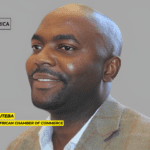Peter Gregory Obi is a renowned Nigerian statesman and successful entrepreneur who has made significant contributions to the economic growth and development of Nigeria.
With a career within both the private and public sectors, Obi has displayed exceptional leadership qualities, a keen understanding of economics, and a deep commitment to improving the lives of the Nigerian people.
Biography of Peter Obi
Peter Gregory Obi, born on 19th July 1961, into a noble family in Onitsha, Anambra state. He was fondly called “OKWUTE” meaning “ROCK” by loved ones.
Obi attended Christ the King College, Onitsha where he completed his secondary school education and obtained his West African Senior School Certificate (WASSCE) before proceeding to the University of Nigeria, Nsukka for a Degree in Philosophy in 1984.
Following his zeal for knowledge, he attended several other institutions where he took advanced courses ranging from financial/ marketing management to advanced management, business policy, and executive leadership.
Educational institutions attended by Peter Gregory Obi
- Christ the King College, Onitsha (W.A.S.C.)
- University of Nigeria, Nsukka (B.A. Philosophy)
- Lagos Business School, Nigeria (Chief Executive Program)
- Harvard Business School, Boston, U.S.A. (Mid to Mid Marketing)
- Harvard Business School, Boston, U.S.A. (Changing the Game)
- London School of Economics (Financial Mgmt/Business Policy)
- Columbia Business School, New York, U.S.A. (Marketing Mgmt )
- Institute for Management Development, Switzerland (Senior Executive Program)
- Institute for Management Development, Switzerland (Break-Through Program for CEOs)
- Kellogg Graduate School of Management, U.S.A. (Advanced Executive Program)
- Kellogg School of Management U.S.A. (Global Advanced Mgmt Program)
- Oxford University: Said Business School, (Advanced Mgmt& Leadership Program)
- Cambridge University: George Business School (Advanced Leadership Program)
Life before politics
Peter Obi was a businessman before he ventured into politics. According to Peter Obi, he started his life as a trader, being born into a trading family before venturing into the corporate world.

He held leadership positions in some private establishments. Some of the companies he served include
- Next International Nigeria Ltd
- Chairman and Director of Guardian Express Mortgage Bank Ltd
- Guardian Express Bank Plc, Future View Securities Ltd, Paymaster Nigeria Ltd
- Chams Nigeria Ltd, Data Corp Ltd
- Card Centre Ltd
He was the youngest chairman of Fidelity Bank Plc.
Life in politics
Obi’s transition into politics marked a turning point in his career, allowing him to make more significant impacts on Nigeria’s economic landscape. He served as Governor of Anambra State from 2006 to 2014 and was widely acclaimed for his fiscal reforms and transparent governance.
Peter Gregory Obi was the chairman of Fidelity Bank before leaving the position to enter politics. He ran for governor in 2003, as a member of the All Progressives Grand Alliance. But his main opponent was unlawfully declared victor. After three years of legal battles, Obi was declared winner in 2006 and assumed office that March.
He was then impeached that November before the impeachment was overturned and he returned to office in February 2007. Again, Obi was removed when a new election was held in April 2007. But the judiciary intervened again and ruled that he should be allowed to complete a full four-year term.
In 2010, he won re-election to a second term. Obi’s terms were marked by improvements in state finances, education, and healthcare. After leaving office in 2014, Obi gained new status as an advocate for good governance and national political figure after decamping to the Peoples Democratic Party in 2014.
During his tenure, Obi implemented sound financial management practices, resulting in increased fiscal discipline and economic stability. He introduced a series of measures aimed at reducing waste, cutting unnecessary expenditures, and increasing internally generated revenue.
These efforts led to a remarkable reduction in the state’s debt burden and an improvement in in the credit rating of the state. Obi’s prudent fiscal policies and commitment to good governance earned him accolades both within Nigeria and internationally.

In recognition of his achievements, he received the “Best Governor in Nigeria” award from several reputable organisations. In 2010, he received the West Africa ICT Development Award for Governor of the Year (2010).
He was honoured with the Bill & Melinda Gates Foundation Award for Best Performing Governor on Immunisation in southeast Nigeria in 2012. Thisday Newspaper named him the Most Prudent Governor in Nigeria in 2009.
Previous positions held by Peter Gregory Obi
- Governor, Anambra State of Nigeria (2006-2014)
- Honorary Special Adviser to the President on Finance (till May, 2015)
- Member, Presidential Economic Management Team (till May, 2015)
- Vice-Chairman, Nigeria Governors’ Forum (2008-2014)
- Chairman, South-East Governors’ Forum (2006-2014)
- Former Chairman: Board of Securities and Exchange Commission (SEC)
- Former Chairman: Fidelity Bank Plc.
- Former Chairman: Guardian Express Mortgage Bank, Ltd.
- Former Chairman: Future Views Securities, Ltd.
- Former Chairman: Paymaster Nigeria Plc.
- Former Chairman: Next International (Nigeria) Ltd
- Former Director: Guardian Express Bank Plc.
- Former Director: Chams Nigeria Plc.
- Former Director: Emerging Capital Ltd
- Former Director: Card Centre Plc
Membership of federal government committe
Peter Obi in his words said in his capacity as the Governor of Anambra State, he served as a member of:
- Federal Government Committee on Minimum Wage
- Federal Government Committee on Negotiation with Labour on Subsidy
- Federal Government Committee on Mass Transit
- Federal Government Committee on Natural Resource
- National Economic Council Committee on Power Sector Reform
- National Economic Council Committee on Sharing of MDGs Funds
- National Economic Council Committee on Accurate Data on Nigeria’s Oil Import and Export
- Agricultural Transformation Implementation Council
- Sub-Committee on Needs Analysis of Public Universities in Nigeria
- National Economic Council Review Committee on the Power Sector
Life outside politics
Peter Obi is a strong advocate for education and human capital development as crucial drivers of economic growth. As governor, he prioritised investments in the education sector, focusing on infrastructural development, teacher training programs, and access to quality education for all children.
Under his leadership, Anambra State witnessed significant improvements in educational standards, with increased enrollment rates and improved academic performance.
Peter Gregory Obi’s passion for education extends beyond his political career. He continues to champion the cause by supporting various educational initiatives and providing scholarships to less privileged students.
His commitment to education and human capital development stems from his belief that a well-educated and skilled workforce is essential for economic prosperity and social progress.
Peter Gregory Obi’s expertise in economic matters and his track record of success have made him a sought-after figure in Nigeria and beyond.
See Also: Bassirou Diomaye Faye, From Prison to President in 20 Days
He has been invited to serve on various national and international platforms, where he shares his insights and recommendations on economic policies, investment opportunities, and sustainable development.
Obi’s contributions extend beyond Nigeria, as he has participated in high-level economic summits, representing Nigeria and engaging with global leaders.
His international engagements have positioned him as a credible advocate for African economic development and have contributed to raising Nigeria’s profile on the global stage.
Membership of professional associations/organizations Peter Obi belong to
- Member, Nigerian Economic Summit Group (NESG)
- Member, Nigerian Chartered Institute of Bankers
- Member, British Institute of Directors (IOD)

Who is Peter Obi Wife
The name of Peter Obi’s wife is Margaret Brownson Obi (née Usen). She is happily married to Peter Obi and they are blessed with two children – Gregory Peter Oseloka Obi and Gabriella Nwamaka Frances Obi.
The couple married in the year 1992. Margaret is the main force behind her husband’s National Gender Affirmative Action, which ensured that at least half of the seats in Obi’s cabinet were filled by women.
Margaret is known for her humility, despite her intelligence, which she concealed while working persistently and secretly to increase the popularity of her husband’s government. Her uncompromising devotion to women’s empowerment and child welfare is also well-known.
Peter Obi Net Worth
Peter Obi is a successful trader who ventured into banking before he became a governor. He’s also engineer of South African Breweries, with all this it’s believed that Obi was a billionaire in naira according to the online sources, even before becoming governor of Anambra state.
However, no one can say exactly Obi’s net worth but from the investments and businesses he owns one can only estimate his net worth. Peter Obi has not come out in person or on tape to mention how much he’s worth. But like he said in several interviews, he was a successful businessman before venturing into politics.

The Obidient Movement
They had been protesting police brutality on social media for years through the hashtag #EndSARS. But in a large mass, they had taken the protest to the streets for the first time in Nigeria.
Then tragedy struck on October 20, 2020, as the reverberating of bullets ripped through the air and people scampered in different directions, a popular DJ made sure the event was witnessed in real-time.
DJ Switch flipped to her Instagram story to livestream the chaos — gore, live ammunition going off, and victims lying in pools of blood — at a protest site in Lekki, a wealthy suburb of Lagos, Nigeria.
At least 12 people were killed in that shooting according to Amnesty International, and DJ Switch now lives in Canada, having had to flee Nigeria for fear of reprisals from the government
The movement gathered support with tactics similar to those used by #EndSARS. There were lively discussions on the internet about the best approach to pull off the biggest political upset in Nigerian history.

They ran targeted YouTube ads and hosted live conversations on Twitter, Instagram, and Facebook, among other events, to get people to register and vote. Twitter became the most powerful social media tool used by activists to build momentum for the movement.
Twitter Spaces were organized to attract educated young Nigerians. One conversation hosted by Modupe “Moe” Odele, a well-known social media influencer and tech lawyer, attracted over 60,000 viewers and an average of 5,000 listeners per minute for more than three hours.
They discussed various strategies, including how to break language barriers, build a mass movement of volunteers, leverage voter data and information, and mobilize support for other candidates in the Labour Party.
The movement’s savvy use of social media to mobilize support for the party was criticized by opposition parties who argued that elections cannot be won online. However, the Obidient’s social media campaign proved them wrong, leveraging young people to organize their followers and building serious momentum for the party.
The majority of young Nigerians came to view Peter Obi as a “third force” and the candidate for anyone opposed to the current elite. In addition to their use of digital and analog media, Obidients built a community of supporters across the country through grassroots mobilization.
They formed groups of canvassers and voters who engaged locals in the streets and marketplaces and went door-knocking for the Labour Party. At the same time, volunteers worked to overcome linguistic and religious barriers and enhance Obi’s appeal across the country.
They also organized political rallies, marches, comedy skits, speeches, and other events. These helped increase awareness about the party, attract millions of voters, and successfully mitigate an increase in election violence. The campaign turned Obi into a serious contender for the presidency.
2023 General Elections and Its Outcome
Peter Obi had been a member of the Peoples Democratic Party, serving two terms as a state governor in the country’s eastern region, and was once that party’s vice presidential candidate.
He was an unlikely figure to challenge the politicians backed by the two dominant parties — Bola Tinubu, a two-term governor of Lagos and kingmaker in Nigerian politics, and Atiku Abubakar, a perennial presidential candidate.
Before moving to the Labour Party, a fringe party with no political reach, Obi was running in the Peoples Democratic Party primary. As the primary approached, it became clear that Obi would lose the race and lose the support of the party, despite a nationwide match by the youths for PDP to give him the ticket.

So he dropped out of the running and left the party. Without the political machinery available to the candidates of the big parties, a bid for the presidency of Africa’s most populated country and largest economy was viewed as quixotic at best.
But thousands of youth who had participated in the social justice protests were looking for a leader who would back their calls for a change in the government and mete out punishment for the October 20 killings.
A situation that made many Nigerians feel the country was at an existential tipping point and led to the death of thousands of people across the country since Buhari began his first presidential term in 2015.
Despite the mowing down of #EndSars protesters, the protest has upended Nigerian politics and the comfortable, business-as-usual environment for the two dominant parties, the All Progressives Party (APC) and the Peoples Democratic Party (PDP).
A third force emerged from the corners of social media, which made the February 25 presidential election a three-horse race for the first time in modern Nigerian history.
Exhausted by factors such as unprecedented insecurity, record-high inflation and unemployment rates, and currency devaluation, among many other issues.
Young people in Nigeria used social media to disrupt the political system and supported Peter Obi, a former governor, and Nigeria’s insurgent Labour Party presidential candidate.
Unlike the two dominant parties, who have shared power between themselves since 1999, Obi and his Labour Party did not enjoy a political grassroots infrastructure and were instead propelled forward in the race by angry social media users.
Nevertheless, the Obidient movement couldn’t get Peter Obi the needed votes to displace the ruling party APC despite the social media advocacy that spurred enough turnout among the youth demographic to be decisive.
Don’t forget that offline, however, hundreds of thousands flocked to Peter Obi’s campaigns across Nigeria, catching the country by surprise.
It was due to the work of young people who worked tirelessly online to sell Obi’s candidacy but it wasn’t enough as INEC declared President Bola Ahmed Tinubu as the winner.
How Obidient Movement Transformed Nigeria’s Political Space
For more than two decades, Nigeria’s political arena has been dominated by two primary political parties.
During this period, their rule has been marred by corruption, growing socioeconomic disparities, rising poverty rates, and a wave of political violence that has claimed numerous lives.

The electoral history of the country has been plagued by persistent violence. Leading up to the 2023 elections, the nation witnessed a grim toll, with at least 100 casualties recorded in the run-up to the elections and no fewer than 39 fatalities during the national polling.
Among the victims were police officers, elected officials, hired hooligans, voters, and even an unnamed staff member of the Independent National Electoral Commission. These casualties occurred during the presidential and gubernatorial elections held on February 25th and March 18th.
In response to this dire situation, the Obidient Movement emerged as a formidable force challenging the prevailing culture of election-related violence. The movement employed a variety of tactics, including rallies, protests, marches, walkouts, and impassioned speeches.
These actions effectively debunked the notion that violence was a necessary tool for overpowering political opponents. Even in the face of violent attacks on supporters of the Labour Party, they managed to stand firm against the intimidation orchestrated by the opposition, a group that had long relied on violence to solidify their power.
However, despite the movement’s efforts, the technology used for voter accreditation and election result transmission from polling stations experienced significant malfunctions.
This disenfranchised many including Obi’s supporters and created opportunities for electoral manipulation. Violent attacks on Labour Party members and electoral irregularities further tainted the election outcomes.
The alleged rigging by the Independent National Electoral Commission, the body responsible for overseeing elections in Nigeria, in favor of Bola Tinubu, the ruling party’s presidential candidate, has cast a shadow of suspicion over the electoral process.
Disgruntled political parties like the Labour Party and the People’s Democratic Party have resorted to legal channels to challenge these results. Activists, civil society organizations, and concerned citizens continue to voice their objections to the presidential election’s outcome.
As the Labour Party persists in contesting the election results, taking their case to the Supreme Court, the newly-elected lawmakers, consisting of eight senators and 34 House of Representatives members, have been entrusted by the party’s leadership to ensure effective representation and advocate for policies and programs that will benefit all Nigerians.
Simultaneously, the Obidient Movement, with members spanning various sectors including entertainment, sports, religious institutions, academia, media, and civil society organizations, remains a force to be reckoned with.

The movement has successfully disrupted the practice of vote buying, enabling candidates to run for office without the need for exorbitant campaign expenditures. This has leveled the political playing field, making it possible for ordinary Nigerians to pursue and win political office.
Additionally, it has opened up the political landscape, offering a platform for average citizens to voice their concerns and demand political change. In doing so, it has discredited the notion of ruthless and self-serving political “godfatherism,” which has long propped up candidates who seek to plunder the nation’s resources.
No longer are the people confined to choosing between two political parties that have repeatedly failed to fulfill their campaign promises. Many EndSARS protesters and other advocates for change have found solace and empowerment within the Obidient Movement, thereby elevating the Labour Party as a potent third force in Nigerian politics.
The Obidient Movement has ushered in a new era for Nigerian politics. Though it may not have clinched the presidency, the movement has significantly reshaped the political landscape by empowering the country’s youth, advocating for non-violence, and challenging the established political order. As legal battles continue, the movement’s enduring influence underscores the importance of grassroots activism and civic engagement.
Controversies Surrounding Peter Obi
Pandora Papers
As a result of the Pandora Papers leaks, the Premium Times reported on Obi’s involvement in offshore companies in tax havens such as the British Virgin Islands and Barbados.
Peter Gregory Obi appeared to have made shell companies in the 1990s with the Barbados-based Beauchamp Investments Limited and UK-based Next International (UK) Limited being tied back to Obi and his family.
Read Also: Allen Onyema, From a Lawyer to Founder of Nigeria’s Leading Airline
This was before he held any political office in Nigeria. Further reporting showed that in 2010 as well, Obi had Access International help him set up and manage Gabriella Investments Limited, a company in the British Virgin Islands named after Obi’s daughter.
One of the directors was also the director of a Belize-based shell company that was issued 50,000 shares in Gabriella Investments.
In 2017, Obi reorganized the company under the name PMGG Investments Limited and created a trust named The Gabriella Settlement, which became the sole shareholder in PMGG Investments Limited. Obi was not holding any political position at this time.
A Premium Times report claimed that Obi remained as director of Next International (UK) Limited while serving as Governor of Anambra State, which is in direct violation of Code of Conduct Bureau and Tribunal Act. In an interview with Arise News, Obi clarified that he resigned from all companies before taking office as Governor of Anambra State.
The report also claimed that Obi’s non-declaration of his offshore companies broke the Nigerian Constitution’s provision that require public officers to declare all their properties, assets, and liabilities.

Obi stated that he did not break any laws and clarified that the accounts’ money was accrued from his time as a businessman. The EFCC invited him for questioning in October 2021, after President Buhari directed all anti-corruption agencies to investigate those named in the leaks.
Leaked phone call
Unconfirmed reports on 1 April 2023, Peoples Gazette published leaked phone conservation between Obi and one of the leaders of Nigeria’s biggest Pentecostal Church, Bishop David Oyedepo of the Living Faith Church Worldwide, also known as Winners Chapel.
In the leaked phone call, which took place a few days before the Nigerian presidential election. Obi declared that the election was a religious war and solicited the support of the bishop to reach out to Christians across the Southwestern part of Nigeria and those in the Northcentral states like Kwara, Kogi and Niger.
The report generated widespread controversy across the country, with some members of his campaign organisation confirming the authenticity of the phone call and defending his position, while other members declared the phone record as a deep fake.[63][64]
On 5 April 2023, Peter Gregory Obi tweeted that the published phone call was fake and threatened to take legal action against the newspaper.
On 1 May 2023, Obi appeared in an interview on Arise TV in Abuja. During the interview, he was repeatedly asked if the audio was fake or authentic, and he repeatedly responded that he was not a tribal or religious bigot.
He declined to state that the conversation did not take place. Instead, he emphasised that it was normal for him and other politicians to solicit support from religious leaders during elections.
Awards & Recognitions
- 2015: Golden Jubilee Award from Catholic Diocese of Onitsha for outstanding contribution to quality healthcare delivery in St. Charles Borromeo Hospital in particular and Anambra State in general, on the occasion of the Golden Jubilee celebration of the hospital.
- 2014: Nigerian Library Association Golden Merit Award for remarkable improvement of libraries in Anambra State, exemplified by our Government’s construction of the Kenneth Dike Digital State Library, remarkable upgrade of the Onitsha Divisional Library, and provision of library facilities in secondary schools across the State.
- 2014: Champion Newspaper Most Outstanding Igbo Man of the Decade.
- 2014 The Voice Newspaper (Holand) Achievers Award for Outstanding Example in Leadership and Governance.
- 2013: Silver Bird Man of the Year (with Governor BabatundeFashola of Lagos State).
- 2012: Business Hallmark Newspaper Man of the Year.
- 2012: The Golden Award on Prudence – by the Methodist Church of Nigeria as the Most Financially Prudent Governor in Nigeria.
- 2012: Leadership and Good Governance Award by The Ezeife Leadership Foundation Award for restoring peace and harmony to Anambra State.
- 2012: Best Performing Governor on Immunization in South-East Nigeria – by Bill & Melinda Gates Foundation.
- 2012: Outstanding Financial Planner and Manager – by the Church of Nigeria, Anglican Communion for my resourcefulness and creativity in governance.
- 2011: Zik Leadership Prize.
- 2010: ICT Governor of the Year – by the West Africa ICT Development Award.
- 2009: Champion Newspaper Nigeria’s Most Trustworthy Governor Award.
- 2009: Thisday Newspaper Most Prudent Governor in Nigeria.
- 2007: The Sun Newspaper Man of the Year Award.
- The Nigerian MDGs Office/UNDP Best Governor in the Implementation of the MDGs in Nigeria

Introduction of Constitutional and Other Major Changes in Nigerian Politics
- He was the first gubernatorial candidate in Nigeria to legally challenge to its logical conclusion, his governorship electoral victory that was denied him. He won in the Courts and reclaimed his mandate.
- PO was the first Governor in Nigeria to legally challenge his wrongful impeachment and was reinstated by the Courts.
- He was the first Governor in Nigeria to seek the interpretation of tenures of Governors when INEC allowed elections to take place in Anambra State when his tenure had not expired; the election already concluded was cancelled and he was allowed to complete his tenure.
- was the first Governor to serve a 2nd term in both the new and old Anambra State, that is, almost 40 years after creation of the State.
- Peter Obi was the first Governor, whilst still in Office, to be appointed a Special Adviser to the President.
- He was the first serving Governor to be appointed into the Presidential Economic Management Team.
- He was among the first Governors to be honoured with a National Award in 2011, while still in office.
- Though the only Governor whose political party was in government in only one State, he was elected Vice-Chairman of the Nigeria Governors’ Forum twice.
- The only non-PDP Governor in the South-East (made up of 5 States), he was elected by the other 4 PDP Governors as their Chairman for 8 years rather than the usual one year.
Some Achievements of Peter Obi as Governor of Anambra State
- Anambra was the first State to commence Sub-Sovereign Wealth savings, the first of its kind in Sub-Saharan Africa. At a time many other Governors were leaving huge debts, I left the equivalent of $500 million Dollars in investment as well as local and foreign currency, including $156 million in Dollar-denominated bonds.
- For the first time in the history of Anambra State, Ambassadors and High Commissioners of notable countries such as United States, Britain, Russia, European Union, South Africa, Belgium, Israel, the Netherlands, Canada, among others, visited the State. Before my tenure, Anambra was practically a pariah state blacklisted by the Diplomatic Corps and international development partners.
- Development partners such as UNDP, UNICEF, the World Bank, DFID, the European Union etc., which hitherto were not in Anambra State started working with the State. Anambra was consistently adjudged one of the best states in development partnership and commitment to reforms for good governance.
- He was recognised as Best Governor by the Millennium Development Goals Office (OSSAP-MDGs) and the UNDP in the implementation of their programmes in Nigeria.
- The Nigerian Debt Management Office (DMO) rated Anambra as the least indebted state in Nigeria. In spite of visible and measurable achievements recorded in various sectors, the State under him did not borrow or raise bonds for her various projects.
- The Senate of the Federal Republic of Nigeria rated Anambra State as the most financially stable state in the country.
- The State’s ground-breaking return of schools to their original owners – Voluntary Agencies (Churches) on 1st January 2009, and subsequent partnership with the Agencies in Education, saw the State move from 24th position out of 36 States to Number One in National Examination Council (NECO) and West African Examination Council (WAEC) examinations for three consecutive years. This made the World Bank to commission a study, led by the renowned Prof. Paul Collier of Oxford University, on this revolutionary partnership and phenomenal achievement.
- The State also entered into strategic partnership with the Churches in the Health sector. This symbiotic relationship resulted in a tremendous boost to health care because of the services offered by health institutions owned by Voluntary Agencies, while the State restored grants to the agencies and made available to them more than 50 million Dollars in various types of support.
- Through partnership with the Church in the Health sector, his Government funded the transformation of -:
a: Iyienu Hospital, Ogidi;
b: Our Lady of Lourdes Hospital, Ihiala;
c: St Charles Borromeo Hospital, Onitsha;
d: Holy Rosary Hospital, Waterside, Onitsha; and
e: St. Joseph Hospital, Adazi-Nnukwu.
His Government also built the Joseph Nwilo Heart Centre in St. Joseph, Adazi-Nnukwu, where heart operations are now being performed. - His Government won the Bill and Melinda Gates Foundation (1 Million dollars) as the best-performing state in immunisation in the South-East. With complementary funding from our Government, they used the money to build 10 Maternal and Child Care Centres across the State, particularly in rural communities, in partnership with the Churches.
- The State was the first to procure and distribute more than 30,000 computers to secondary schools, including 22,500 from HP. The Managing Director for Personal Systems Group HP Inc, Mr. FabriceCampoy described the deployment as the biggest of such projects in the Middle-East and Africa.
- Anambra State Government provided Microsoft Academies to more than 500 secondary schools, which the Head of Microsoft in Nigeria (Mr. Ken Span) described as the biggest such deployment in Africa so far.
- The State provided Internet access to more than 500 secondary schools, which the CEO of Galaxy Backbone (Mr. Gerald Ilukwe) characterized as incomparable to any in the country.
- More than 700 buses were provided to secondary schools in the State by our Government.
- Boreholes were provided in schools all over the State.
- Numerous classrooms were built in all the 177 communities of the State.
- As part of the efforts to turn around the economy of the State, a number of companies were attracted to build their facilities in the Anambra State. A case in point is SABMiller, the 2nd largest brewery in the world, which built their first Green Field facility in the State, which is today one of the most successful facilities they operate globally.
- A number of other companies followed the SABMiller initiative and were all supported and encouraged under our Government; a good example is INNOSON Motor Manufacturing Company, from which our government bought more than 1,000 vehicles.
- Anambra State for the first time started close collaboration with recognized government security agencies (the Police, Army, Navy, Department of State Security, Civil Defence, among others), offering them various types of support including provision of more than 500 security vehicles. The improvement in security was phenomenal, such that the former IG of Police (Abubakar Mohammed) lauded Anambra State for not witnessing any bank robbery in my last three years in office.
- To further enhance security, Anambra State provided at least one security vehicle to each of all the 177 communities in the State as well as various organizations such as markets and Churches.
- His Administration conceived and built, from scratch, the first state-owned Teaching Hospital, Chukwuemeka Odumegwu-Ojukwu teaching Hospital, Awka.
- His Government commenced the planned development of the Igbariam Campus of the ChukwuemekaOdumegwu-Ojukwu University, including the fencing, construction of internal roads, electrification, construction of the Faculty of Law, Auditorium, Administrative Block, Faculty of Agriculture, Management Building, among others).
- His Government attracted the World Bank support on erosion – National Erosion and Watershed Management Project (NEWMAP) – to Anambra State.
- His Government was the first to do Poverty Mapping in Nigeria, as a guide for the effective implementation of our poverty-alleviation strategies.
- His Government, for the first time, undertook the aerial mapping of Awka as well as the production of Structure Plans for Awka Capital Territory, Onitsha and Nnewi.
- During his tenure and with his Government’s support, Anambra State became an oil producing State.
- He built the first Secretariat Complex to house State Government Ministries that were hitherto scattered around the State.
- His government commenced the development of the ‘Three Arms Zone’ comprising Government House/Governor’s Lodge, Legislative Building/Speakers Residence, and Judiciary Building with Chief Judge’s Residence.
- By the end of his tenure in 2014, more than twelve (12) health institutions, including two hospitals, had secured accreditation; when we took off in 2006, no health institution in Anambra State was duly accredited.
- Anambra State was the first to undergo national peer review, which scrutinised State Governments for good governance, through the State Peer Review Mechanism (SPRM), an initiative of the Nigerian Governors’ Forum in collaboration with the DFID.
Disclaimer: This article is strictly for educational and research purposes and not in any way linked to any political party or sponsored by Peter Obi himself.
References:
- Wikipedia
- Vanguard
- The Journalist
- The Obidient Movement: Transforming Nigeria’s Political Landscape by Orji-Oko Chukwuemeka (published in AA Magazine)







![Biography of Tony Elumelu [Investor, Entrepreneur, & Philanthropist]](https://todayafrica.co/wp-content/uploads/2023/12/Blue-Simple-Dad-Appreciation-Facebook-Post-1200-×-720-px-7-1.png)








